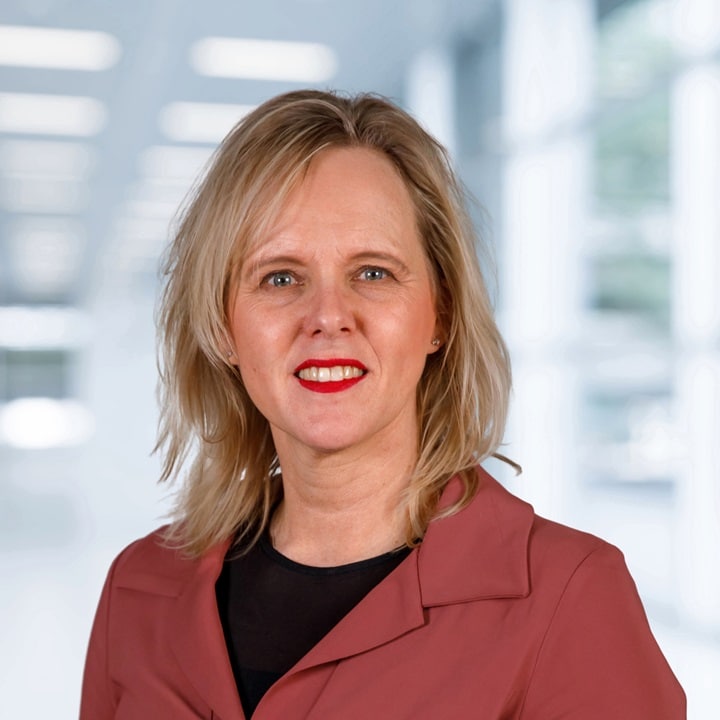
In all industries, innovation is about ecosystems
Earlier this year, I wrote about how we want to go beyond the service-level agreement (SLA) at Solvinity. How important it is to provide input as a proactive partner. And how thorough market knowledge is indispensable for this. That’s why our market experts have been working hard to get to know their segments even better and to disseminate this knowledge throughout the organisation.
An important insight I have gained from this is that in all our main segments (government, financial services, business services and software development) the same shift is visible towards digital ecosystems. However, in order to keep these cloud-based ecosystems secure and compliant, suppliers must commit to better collaboration.
Making the move to Software-as-a-Service (SaaS) in all sectors
Whether it is the new Environment and Planning Act for municipalities, the upcoming Pensions Act the financial world is getting ready for, or the platform economy which is one of the challenges business service providers are currently facing, organisations are often encountering the same problems.
There is exponential growth in data that needs to be processed in near real-time, and as transparently as possible. In addition, there is a need for a much faster time-to-market in order to be able to operate in a more customer-focused way. In practice, this is leading to a major shift towards SaaS business models, as the cloud’s cost efficiency and economies of scale can then be exploited.
This switch to SaaS is resulting in huge IT environments: digital ecosystems in which different suppliers co-exist. This can work fine in terms of time-to-market or flexible scaling up and down. However, insufficient alignment within this ecosystem can also lead to security and compliance issues.

Intensifying collaboration
In a digital ecosystem, Development and Operations are brought together in a single environment. On the one hand, this requires a great deal of openness and willingness to cooperate on the part of the various suppliers. On the other hand, responsibilities must remain clearly defined.
Customers want to be able to develop services faster on a flexible cloud platform. This is grist to the mill of application developers. But at the same time, the entire ecosystem must also meet security and compliance requirements such as ISO 27001, PCI DSS, SOC 1 and SOC 2. Which is where we come in.
Even in the cloud, you need a well-organised development environment, with strictly separated components. You can’t simply put your entire environment in the cloud as a whole. After all, if this development infrastructure isn’t set up properly, cybercriminals can gain access to the entire cloud environment through a single vulnerability, for example. And although rapid time-to-market is an important objective in cloud migration, security and compliance checks remain necessary before new features are transferred from development and test environments to production environments.
As a Managed Services Provider, we are in an excellent position to take on this monitoring role within digital ecosystems. This also means a change for us: instead of a tactical role, we are now taking on strategic responsibility as the connecting factor between the various suppliers.
To fulfil this new role, it isn’t enough to simply keep the infrastructure running securely. Instead, we are reaching out beyond our own organisation to other chain parties in order to strengthen collaboration. No longer reacting to requests, but looking out for opportunities.
We are seeking out this collaboration not only with our customers and their partners, but also in a national context. In this way, with the aim of promoting collaboration in digital services, we – together with the likes of Nyenrode and Radiocommunications Agency Netherlands – are committed to the Digital Ecosystems Institute.

Extreme customer focus
By working together better within ecosystems, we are better able to meet customer demand. If we do not understand the developments within market segments, we cannot make the difference. Within digital ecosystems, it is easier to achieve this acceleration. On your own, you lack a lot of market knowledge, but with individual partners contributing their own expertise, you fill in each other’s blind spots.
I see the resistance to cooperation mainly as the result of an internally-focused view. Service providers often merely look at issues based on their own expertise – that is to say, from the inside out. But complex customer issues can only be properly understood from the point of view of the market, or from the outside in.
In short, we have to think customer-focused. Every Solvineer, and ideally every partner we work with, must know the market, and understand the reasons why we do what we do. Not just from a technical perspective, but also from a business perspective. Only then can we ensure more customer focus and more acceleration in digital transformation.
Sign up for the Solvinity Newsletter
Receive the latest news, blogs, articles and events.
Subscribe to our newsletter.
Other articles
More
Take Control of Your Security Strategy with the NIST Framework
Discover how the NIST Framework helps you structure your security approach and keep risks under control...
READ MOREWhat makes a Secure Managed Cloud truly ‘secure’?
What makes a Secure Managed Cloud truly ‘secure’? In an era where cyber threats are constantly...
READ MOREThe complexity of IT Regulations for municipalities
In addition to the daily challenge of managing a secure and efficient IT environment, municipalities face...
READ MORE
